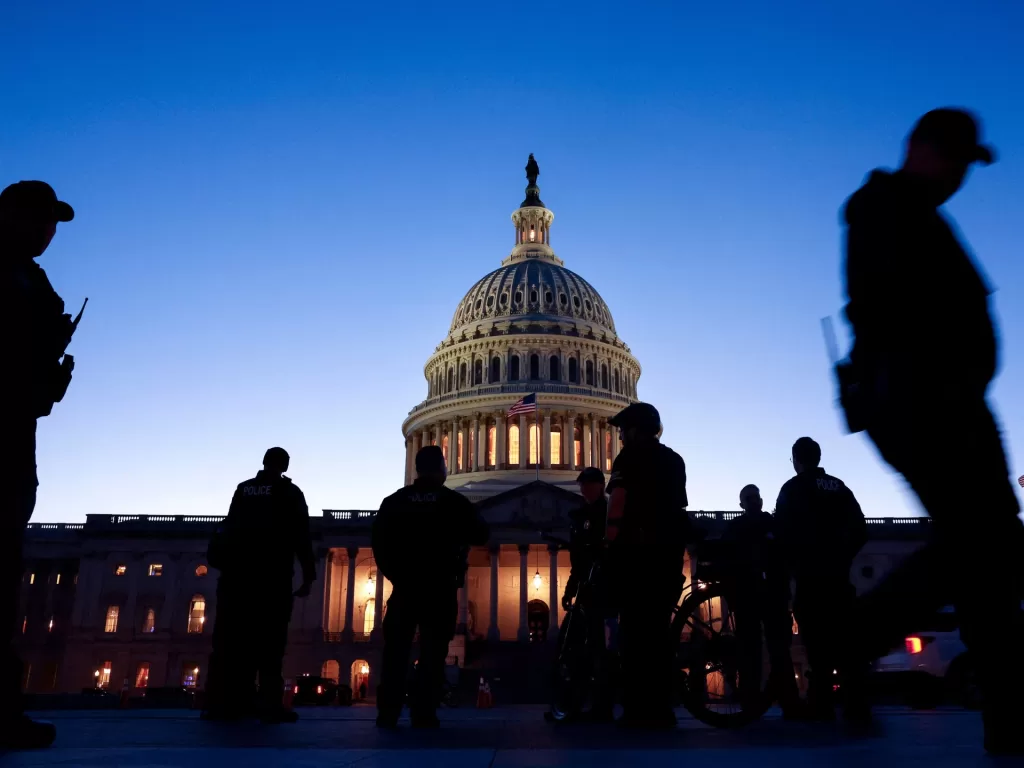Vote is a major step towards finalising the 2024 federal budget after months of deadlock in the divided Congress.
The lower house on Friday voted 75-22 to approve a $460bn spending package of six bills that will fund agriculture, transportation, housing, energy, veterans and other programmes through the end of the fiscal year on September 30. The lights would have gone out across several departments and agencies this weekend if the funding was not passed.
The vote was a crucial step towards finalising the 2024 federal budget after months of deadlock in the deeply divided Congress. The bill has been sent to President Joe Biden to sign into law.
In a statement ahead of the bill’s passage, top Senate Democrat Chuck Schumer hailed the legislation as a “major step” towards a fully funded government.
“To folks who worry that divided government means nothing ever gets done, this bipartisan package says otherwise: it helps parents and veterans and firefighters and farmers and school cafeterias and more,” he added.
Tonight, the Senate has reached an agreement avoiding a shutdown on the first six funding bills.
We will keep important programs funded for moms and kids, for veterans, for the environment, for housing, and so much more.
— Chuck Schumer (@SenSchumer) March 9, 2024
The bill easily passed the Republican-controlled House of Representatives earlier this week. Action in the Senate was delayed as some conservative Republicans pressed for votes on immigration and other topics.
Congress must still work out a deal on a much larger package of spending bills, covering the military, homeland security, healthcare and other services. Funding for those programmes expires on March 22.
The package just passed and the pending bills that make up the federal annual budget would cost $1.66 trillion.
All these measures were supposed to have been enacted into law by October 1, the start of the 2024 fiscal year. While Congress rarely meets that deadline, the debate this year has been chaotic with congressional leaders relying on a series of stopgap bills to keep federal agencies funded for a few more weeks or months while struggling to reach an agreement on full-year spending.
